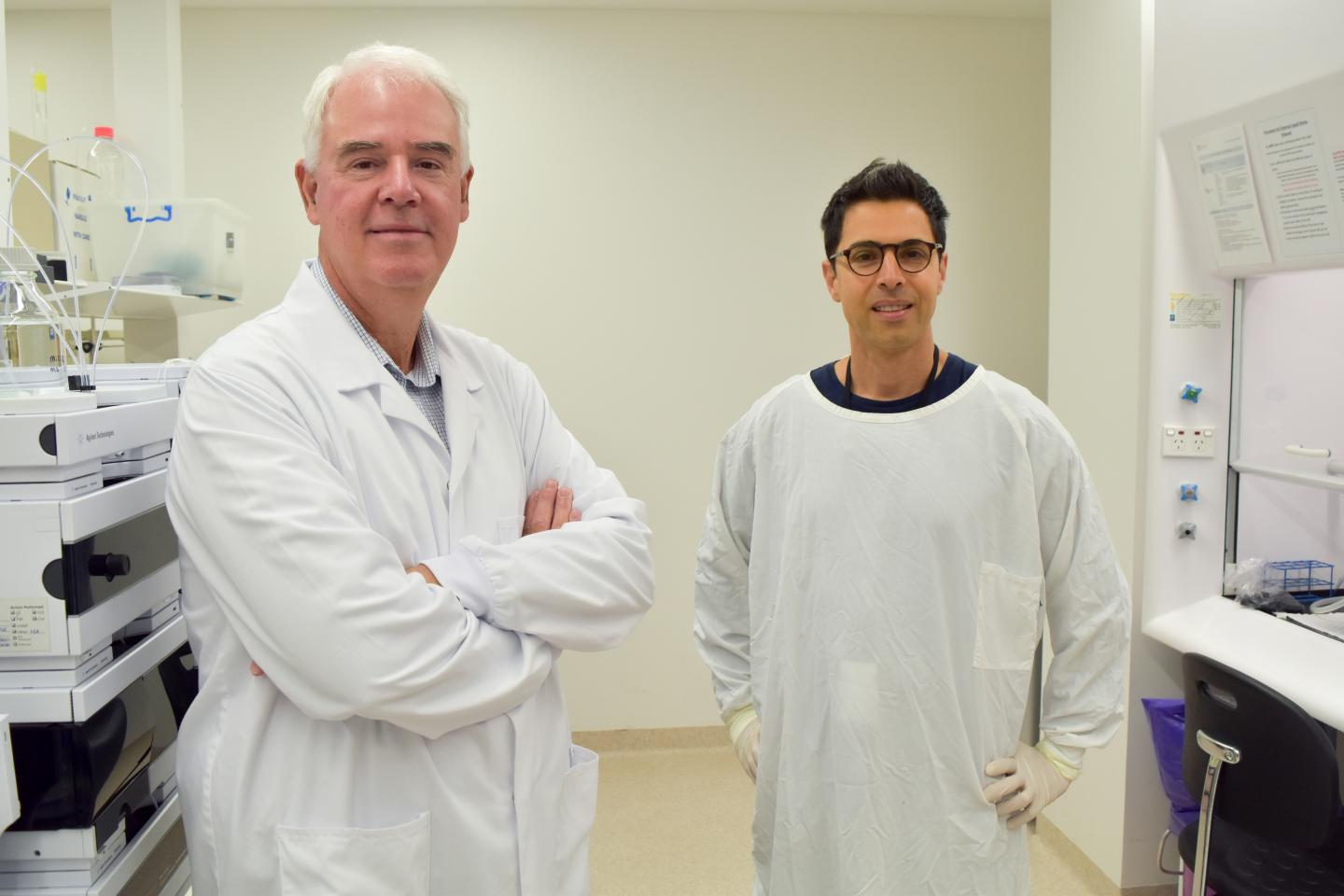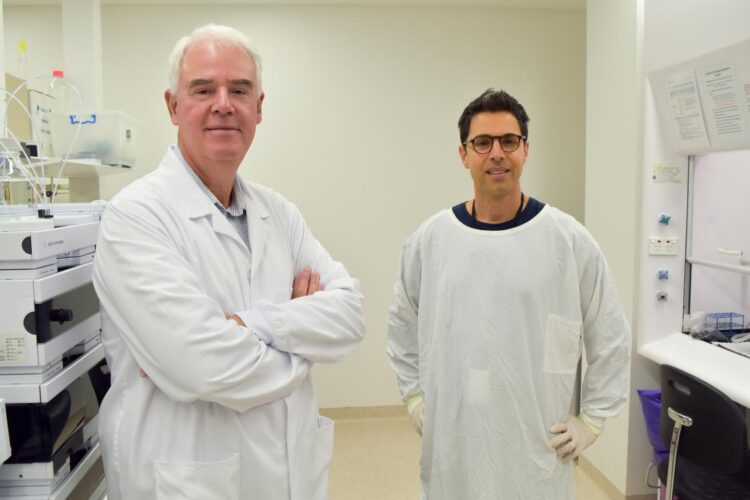
Credit: Centenary Institute
A ground-breaking discovery by Centenary Institute scientists has provided new understanding as to the nature of proteins and how they exist and operate in the human body.
The key finding-the changing state of a protein’s structural bonds-is likely to have significant implications as to how proteins are targeted by medical researchers, particularly in terms of drug development and the fight against disease.
Proteins are responsible for all of life’s processes and had previously been considered to exist in an intact single state when mature. The new study however has found two human proteins involved in blood clotting and immunity existing in different and changing states.
“The most sophisticated molecules made in nature are proteins which consist of unique sequences of amino acids,” said Dr Diego Butera from the ACRF Centenary Cancer Research Centre and lead author of the study. “Disulphide bonds link the amino acid chains together and were thought to just stabilise protein structure.”
Previously it has been believed that these disulphide bonds were fully formed in the mature and functional protein. In this study however, the researchers found that the proteins are being produced in multiple disulphide-bonded states.
“We were able to precisely measure whether the disulphide bonds in the blood proteins were formed or broken. Remarkably, we saw that the proteins were made in multiple, possibly thousands, of different disulphide-bonded states,” said Dr Butera.
Professor Philip Hogg, Head of the ACRF Centenary Cancer Research Centre and senior author of the study believes that their research will change how proteins are viewed and targeted in future drug and medical experiments.
“It’s very likely that we will find many other proteins that exist in multiple states. Crucially, a drug may bind more or less preferentially to different states, impacting the effectiveness of the drug.”
“In experimental settings, differing states of a protein should now be considered as part of the investigative medical research process,” Professor Hogg said.
###
The study was published in the prestigious science journal ‘Nature Communications‘.
Publication:
Fibrinogen function achieved through multiple covalent states.
https:/
Image:
Professor Philip Hogg and Dr Diego Butera
https:/
For all media and interview enquiries, please contact
Tony Crawshaw, Media and Communications Manager, Centenary Institute on 0402 770 403 or email: [email protected]
About the Centenary Institute
The Centenary Institute is a world-leading independent medical research institute, closely affiliated to the University of Sydney and the Royal Prince Alfred Hospital. Our research focuses on three key areas: cancer, inflammation and cardiovascular disease. Our strength lies in uncovering disease mechanisms and applying this knowledge to improve diagnostics and treatments for patients.
For more information about the Centenary Institute, visit http://www.
Media Contact
Tony Crawshaw
[email protected]
Related Journal Article
http://dx.





